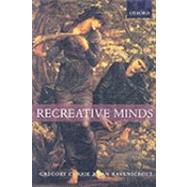- ISBN: 9780198238096 | 0198238096
- Cover: Paperback
- Copyright: 2/27/2003
Recreative Minds develops a philosophical theory of imagination that draws upon recent theories and results in psychology. Ideas about how we read the minds of others have put the concept of imagination firmly back on the agenda for philosophy and psychology. Currie and Ravenscroft present atheory of what they call imaginative projection; they show how it fits into a philosophically motivated picture of the mind and of mental states, and how it illuminates and is illuminated by recent developments in cognitive psychology. They argue that we need to recognize a category ofdesire-in-imagination, and that supposition and fantasy should be classed as forms of imagination. They accommodate some of the peculiarities of perceptual forms of imagining such as visual and motor imagery, and suggest that they are important for mind-reading. They argue for a novel view about therelations between imagination and pretence, and suggest that imagining can be, but need not be, the cause of pretending. They show how the theory accommodates but goes beyond the idea of mental simulation, and argue that the contrast between simulation and theory is neither exclusive nor exhaustive.They argue that we can understand certain developmental and psychiatric disorders as arising from faulty imagination. Throughout, they link their discussion to the uses of imagination in our encounters with art, and they conclude with a chapter on responses to tragedy. The final chapter also offersa theory of the emotions that suggests that these states have much in common with perceptual states.Currie and Ravenscroft offer a lucid exploration of a fascinating subject, for readers in philosophy, psychology, and aesthetics.







